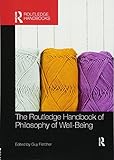(第9章)万人のための健康
I. Universal Heal Coverage, & II. Poverty and Disease
- SDの大前提には、健康であることが挙げられます。個人がどんなに能力が高くても、健康でないとその力を発揮できません。1948年の世界人権宣言でも、健康とウェルビーイングは人権かつ基本的ニーズだと謳います(第25条)。
Article 25.
(1) Everyone has the right to a standard of living adequate for the health and well-being of himself and of his family, including food, clothing, housing and medical care and necessary social services, and the right to security in the event of unemployment, sickness, disability, widowhood, old age or other lack of livelihood in circumstances beyond his control.
(2) Motherhood and childhood are entitled to special care and assistance. All children, whether born in or out of wedlock, shall enjoy the same social protection.
私の研究では、個人のサステナビリティについては、ウェルビーイングを中心的課題として扱い、「ウェルビーイングに資するノンフォーマル教育」の研究報告書(概要)も公開しています(Amazonは有料なので注意)。
- 1978年のアルマ・アタ宣言(Alma-Ata Declaration)は、「実践的で科学的に有効、社会に受け入れられる手段と技術にもとづいた、必要不可欠な保健活動」を指すプライマリ・ヘルス・ケア(PHC)を扱いました(国際保健用語集より)。2000年をPHC普及目標年にしましたが、エイズ拡散などで無理でした。冷戦時代の奇跡らしく、課題に取り組む当時の専門家の気持ちを想像すると頭が下がる思いです。ちなみに場所は、現在のカザフの都市。
- 国際比較で見た場合、収入の高い国の方が長い寿命を示します(p.280)。
- 国際的にも、国内でも、貧困状態については改善が見られます。
- ただし、貧困と病気は連動しています。Poverty and ill health go together (Sachs 2005). This linkage must be understood to address the challenges of heavy disease burdens in poor countries, and the explanations need to be used to identify tools to break the poverty trap itself...A high disease burden can have a strong direct adverse effect on a local or national economy as well. It is not uncommon for a whole farm community to be knocked out by malaria and thus physically unable to harvest the crops necessary for survival. (p.287-288).
- Poverty is also associated with illiteracy, innumeracy, and therefore poor health knowledge and weak health seeking behaviors. Illiterate people may have a great difficulty understanding how to fill a prescription or adhere to a drug regimen... There are therefore two directions of causation: poor health leads to poverty and poverty leads to poor health. Whenever the arrows work in both directions, there is the possibility of a vicious spiral.(p.290)
ここ、大事なポイントです。JICA広報誌で「生きる力」としてノンフォーマル教育の話をしました。ここでは、教科書と同じ内容が示されています。
- 教科書p.294の5歳までの子どもの主な死因も参考にしてください。
III. Designing and Financing Primary Health Systems in Low-Income Countries
- 公衆衛生(public health)の重要性は途上国で明白。そのための、3つの段階
- まず現状把握すること
- 介入の可能性を検証すること
- 「systems design」(システム思考)で公衆衛生を考えること
- 公衆衛生のための組織を運用する場面での課題は大きい。NGOなどの可能性はここにもある。さらに、資金源・運用も課題となる。
IV. Ten Recommended Steps to Health for All in the Poorest Countries
- 教科書(pp.301-305)参照:資金、財政、計画、ドナーとの調整、地球規模の基金創設、病気の研究
V. The Continuing Challenges of Health Coverage in the High-Income Countries
- 家計負担の課題
- 日本は、いちおう国民全員が加入していることになっています。
最後に、丸山の研究の中から、ウェルビーイング研究について
主観的ウェルビーイングと主観的幸福について、 簡単に区別できないのですが、この領域の研究も多々あります。

The Science of Subjective Well-Being
- 作者: Michael Eid,Randy J. Larsen
- 出版社/メーカー: Guilford Pubn
- 発売日: 2008/10/09
- メディア: ペーパーバック
- この商品を含むブログを見る
心理学的アプローチも多くて、個人にフォーカスすると、次のような話に。
![Wellbeing: The Five Essential Elements [Rough Cut] Wellbeing: The Five Essential Elements [Rough Cut]](https://images-fe.ssl-images-amazon.com/images/I/41LgZVn%2BcIL._SL160_.jpg)
Wellbeing: The Five Essential Elements [Rough Cut]
- 作者: Tom Rath,Jim Harter
- 出版社/メーカー: Gallup Press
- 発売日: 2010/05/04
- メディア: ハードカバー
- この商品を含むブログ (2件) を見る
研究としてまず全体を把握するには、手引書が良いでしょう。

The Routledge Handbook of Philosophy of Well-Being (Routledge Handbooks in Philosophy)
- 作者: Guy Fletcher
- 出版社/メーカー: Routledge
- 発売日: 2017/10/13
- メディア: ペーパーバック
- この商品を含むブログを見る